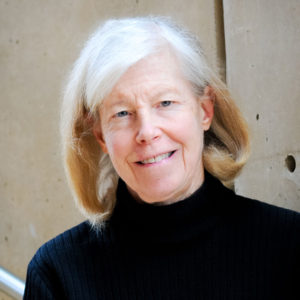Leading national legal research institute honors Stanford Laws Deborah Rhode with Outstanding Scholar Award
Stanford, Calif., February 10, 2014 – Stanford Law School’s Deborah L. Rhode accepted the Outstanding Scholar Award from The Fellows of the American Bar Foundation at a weekend ceremony in Chicago, Ill. The American Bar Foundation announced the award in a January 27th press release. Rhode is the Ernest W. McFarland Professor of Law, Director of the Center on the Legal Profession and Director of the Program in Law and Social Entrepreneurship at Stanford Law School.
“Throughout her distinguished career, Professor Rhode has become a highly lauded and frequently cited scholar on legal ethics,” said Don Slesnick, Chair of The Fellows of the American Bar Foundation. “From her groundbreaking work on access to justice to her unique contributions to research on gender and the law, Rhode’s prolific career exemplifies the type of outstanding scholarship that The Fellows of the American Bar Foundation seeks to recognize through the Outstanding Scholar Award.”
Rhode’s interest in legal ethics and access to justice began very early in her legal career.
During law school, Rhode worked for a legal services office that wanted to create a kit to help low-income people represent themselves in legal matters. With relatively few legal resources available to the poor at the time, the kits could have significantly improved access to justice for those who needed it most. The local bar association, however, frowned upon the effort and threatened to sue, arguing that the kits represented the unauthorized practice of law. Consequently, the office chose to shelve the project.
These developments “struck me as just wrong on so many levels,” Rhode says.

Believing that the bar association erred in doctrine and in policy—and sensitive to the group’s economic self-interest in clamping down on the kits—Rhode researched the matter further. She found that when another organization made similar kits available to the public, kit-users made about the same number of mistakes as those who had attorneys representing them.
This work, which was published in the Yale Law Journal, “convinced me both to become an academic and to write about issues of legal ethics, and particularly those related to access to justice,” Rhode explains.
For Rhode, legal ethics and access to justice are inextricably intertwined.
“What passes for justice among the have-nots is scandalous,” Rhode declares, adding that access to justice is “an integral part of legal ethics instruction.”
And she is aware of the critique that ethics cannot be taught: “There is definitely a view that either students have it or they don’t.”
But as Rhode clarifies, empirical legal research suggests that young adults’ strategies for dealing with ethical challenges are malleable. Rhode’s own approach to teaching legal ethics involves a combination of well-taught simulations, real-life problems and case histories. Additionally, Rhode prefers to spend more time on ethical questions that implicate conflicting values and true dilemmas rather than on questions with easy answers.
Rhode is the founding president of the International Association of Legal Ethics, the former president of the Association of American Law Schools, the former chair of the American Bar Association’s Commission on Women in the Profession, the former founding director of Stanford’s Center on Ethics and the former director of Stanford’s Institute for Research on Women and Gender.
Rhode has also won numerous awards, including the American Bar Association’s Michael Franck Award for contributions to the field of professional responsibility, the American Bar Foundation’s W.M. Keck Foundation Award for distinguished scholarship on legal ethics, the American Bar Association’s Pro Bono Publico Award for her work on expanding public service opportunities in law schools and the White House’s Champion of Change award for a lifetime’s work in increasing access to justice.
A member of the American Academy of Arts and Sciences and Vice-Chair of the Board of Legal Momentum, Rhode is a highly accomplished scholar. She has authored or coauthored more than 20 books and 250 articles. Rhode is also a columnist for the National Law Journal and has published editorials in The New York Times, The Washington Post, The Boston Globe and Slate. Her recent publications include The Beauty Bias, Woman and Leadership, Legal Ethics,Gender and Law, Moral Leadership and Access to Justice.
About Stanford Law School
Stanford Law School is one of the nation’s leading institutions for legal scholarship and education. Its alumni are among the most influential decision makers in law, politics, business, and high technology. Faculty members argue before the Supreme Court, testify before Congress, produce outstanding legal scholarship and empirical analysis, and contribute regularly to the nation’s press as legal and policy experts. Stanford Law School has established a new model for legal education that provides rigorous interdisciplinary training, hands-on experience, global perspective, and focus on public service, spearheading a movement for change.
